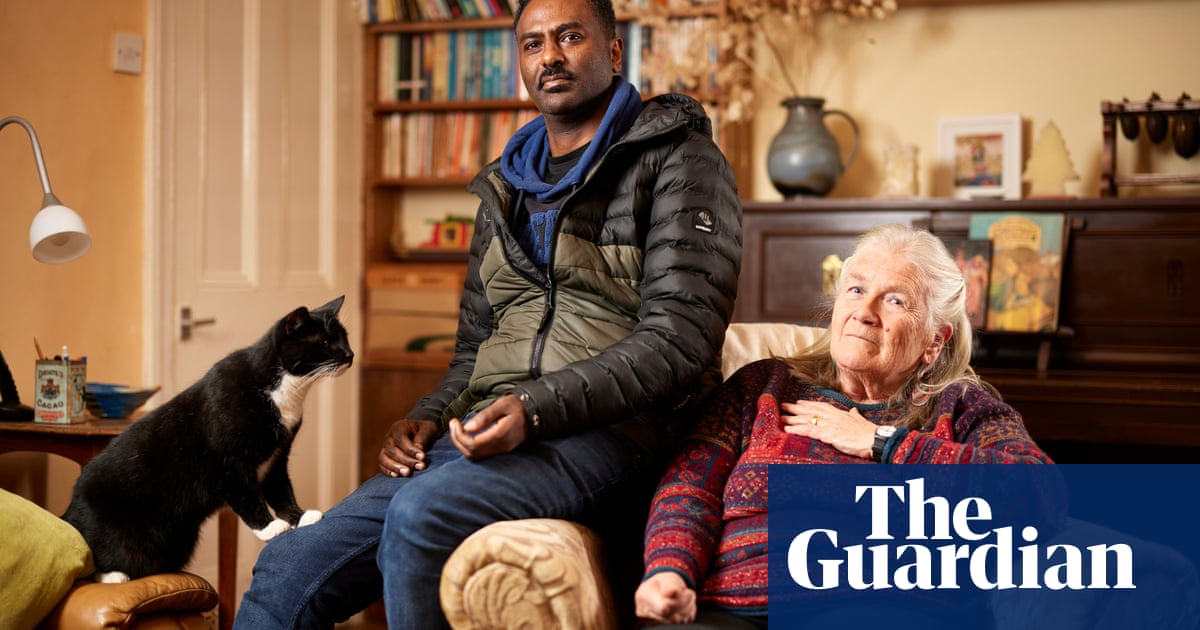
Jane Embury, from Devizes, Wiltshire, lost her job and her home during the pandemic.
Her and her husband’s manufacturing business, producing architectural steel for commercial glazing, suffered from import hurdles after Brexit. Then Covid hit and construction sites closed. Embury, who had been living alone but continued to work with her husband after they split up years ago, took out a £250,000 loan against her home, on which she had already paid off a mortgage, in the hope of saving the family business, but in vain.
“We went into administration in 2022,” she said. “I was looking for part-time work locally, but I’m too old to be a delivery driver. I had to sell my house to repay the by-then £400k loan. I walked away with £5,000 from the sale, after all debts and fees. I’m now living on the top floor of my husband’s house. My only income is the state pension.”
Embury, 71, is one of hundreds of women who shared with the Guardian what matters to them the most this general election, and how they may vote on 4 July.
Her key issues, she said, are “the climate, the NHS, social care, our polluted rivers”. Having voted Labour last time, she will tactically vote Lib Dem now, hoping to turn her historically safe Conservative seat orange.
“A lot of the previously Tory farmers here don’t have much faith in Starmer, but they’re willing to consider the Lib Dems,” she said.
“I think everyone needs to stop bashing Labour and expect instant changes when they get in. They’ll have such an uphill struggle – the criminal justice system, the police, the benefit system. They’ll be firefighting from day one. It’ll take time, but all you can do is hope that they can start mending the wreckage of the last 14 years.”
Many of the women who responded to an online callout or spoke to the Guardian expressed frustration with politics that had failed to address poverty, inequality, healthcare for women and children in particular, the climate and Brexit, and voiced acute fears for their and their families’ future: mothers of children with SEN (special educational needs) or mental health issues, mothers unable to afford childcare, or with adult children unable to buy homes, unpaid carers, women feeling exploited in low-paid jobs with no prospects of progression, and women with disabilities fearing harsher welfare conditions in future.
Scores also said they were concerned about rising extremism and political polarisation, misogyny, violence against women and girls, antisemitism and Islamophobia.
About a fifth of respondents said they had either decided to spoil their ballot paper or were considering doing so, among them Sharon, a 60-year-old social worker and “lifelong Labour voter” from London who does not own her own home and has no savings. Her two adult children are unemployed, despite having gone to university, each owing about £40,000 as a result. Private rental housing was “beyond their means”, she said.
Politicians, she said, had repeatedly failed to deliver on promises, such as building more houses, improving the NHS, or reducing knife crime.
“However, the final straw for me is the issue of women’s rights,” she added.
Sharon was one of hundreds of women who shared that sex-based rights for women and girls was a main political concern of theirs this election.
Women from across the country, dozens of them economically disadvantaged or with disabilities, said they would abandon Labour, the Lib Dems or the Greens over this issue and vote either Conservative, Reform or spoil their ballot – particularly women from marginal areas Labour is hoping to gain, such as Lincoln, Darlington, Derbyshire, Warrington North and Truro and Falmouth.
Various said they felt “politically homeless” because of this issue, with Starmer having repeatedly referred to the debate over trans rights as “divisive and toxic” culture wars.
“This ain’t a culture war,” said Kerri Clarke, a 46-year-old stay-at-home mother from Hertfordshire. “I’ll be voting Conservative for the first time in my life, as the child of Labour activists.”
Clarke worries that the current Labour party is “utterly uninterested in women, our rights to safety and dignity”.
“This is about supporting our sisters in prisons and women’s shelters,” said Anne, 61, from Burnley, Labour’s “most winnable seat”.
Having always voted Labour, Anne said she might abstain for the first time unless she heard something positive from Labour on the protection of women’s and girls’ “safety and opportunities” this week.
Tracy, from Kent, in her 40s and usually a Labour voter, is likely to spoil her ballot. “I want to vote Labour but I can’t bear to support a party that so struggles to define the word woman.
“There are some contexts where biological sex matters, and women’s rights have been affected in recent years by a failure of law and policy to recognise this. Starmer wants this to go away, but it’s not going to go away.”
Some expressed fears for the safety of trans-identified relatives in the current political climate, such as a woman from the West Country who said her teenage daughter was transgender and felt “concerned by the aggressive and inhumane discussion of marginalised people”.
About a quarter of the women who got in touch said they were still undecided, among them Alice, from the marginal seat of Mid Bedfordshire, where Labour could oust the Conservatives despite their current majority of 24,664.
She’d “like to vote Lib Dem” but felt that the party had not centred “the harms of Brexit to our businesses, healthcare, communities and culture” sufficiently in their election campaign. A party keen to get her support should, Alice said, “talk about how to repair this damage”, echoing remarks from others.
Various women said they were torn between voting Green, Lib Dem or Labour, as Labour had become “too centrist”, or because of Gaza.
“I might well be undecided until the moment I’m standing in the polling booth,” said Ally*, 32, a local council employee from Reading who has always voted Labour in the past.
“I can’t name a single Labour policy that will change anything for me, or change much for those suffering the most in this country. Where’s the ambition for the future of this country, the hope?” The Green party, she felt, “seem to have the right ideas”, but voting for them felt like “throwing my vote away”.
Louise, 62, a massage therapist from Knutsford in the constituency of Tatton – where the Conservative MP Esther McVey is predicted to lose her 19,000 majority to Labour – decided days before the election to “hold her nose and vote Labour”, despite favouring the Greens.
For the past decade she has been spending about 30 hours a week helping to care for her parents, a task leaving her and her sister “permanently utterly shattered”.
Like others, she worried about voter apathy, particularly in younger people.
Scores of women, from across the political spectrum, said immigration was a main concern: Politicians, they told the Guardian, should “close our borders immediately”, and “tighten UK security”.
Helena, a 47-year-old teacher from Worcester who voted Labour in 2019, said parties could win her support by, among other things, “addressing immigration decisively, listening to the concerns of ordinary voters and investing in the skills of young people in this country” – views that were widely shared by respondents, various of whom expressed fears over soaring crime and poorly managed integration of migrants affecting schools and other public services.
Elizabeth, a 72-year-old retired civil servant from London, said social care, child poverty and the cultural sector were among her top concerns and she would “reluctantly” vote Labour.
“I have no doubt that Labour should not rule out raising tax in some areas and should commit to borrowing,” she added.
“Labour gives the impression of being willing to do and say anything to win over [Boris] Johnson voters. It leaves the likes of me feeling unrepresented, especially as I’m not a ‘hard-working family’. Spinsters are people, too.”
*Name has been changed












